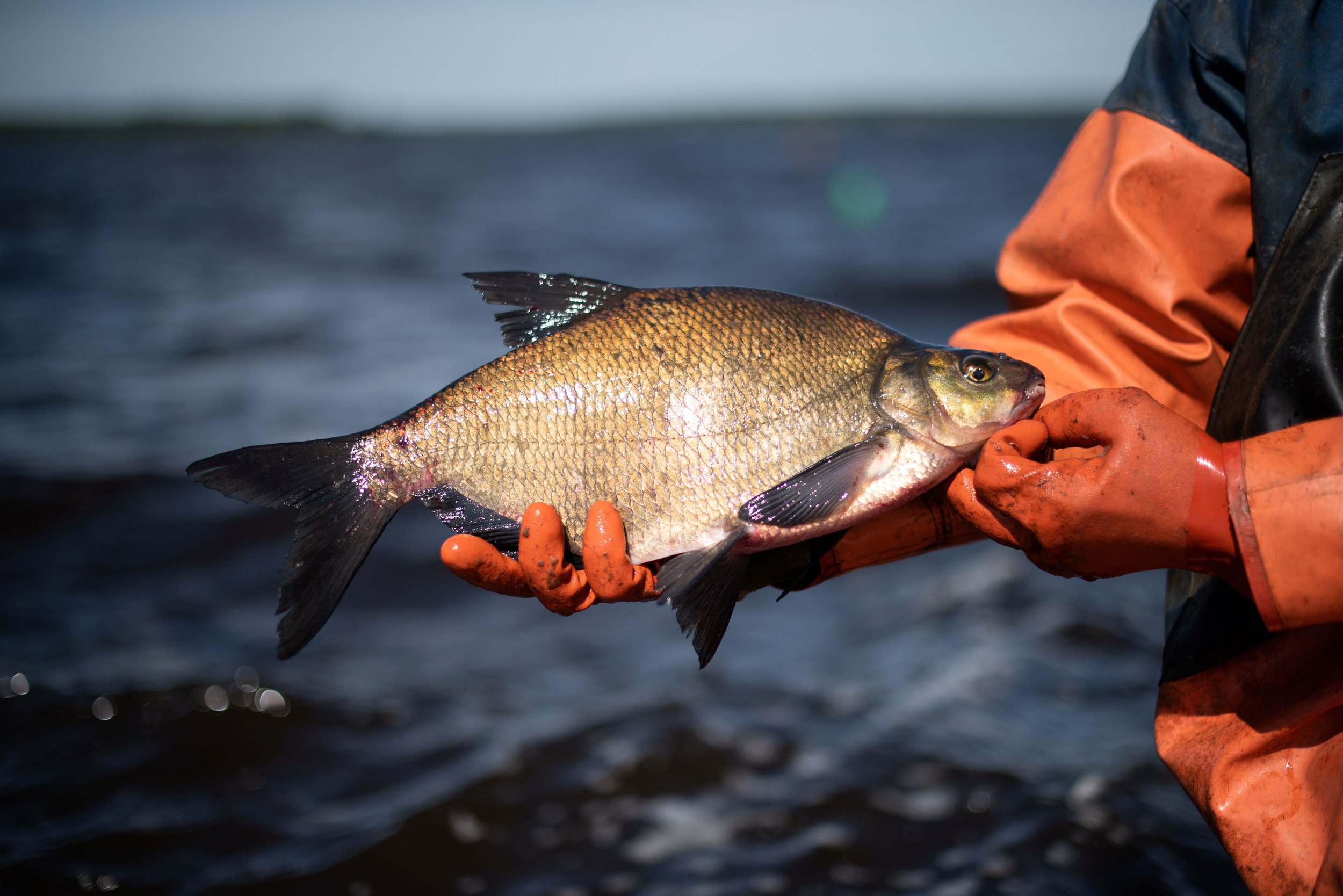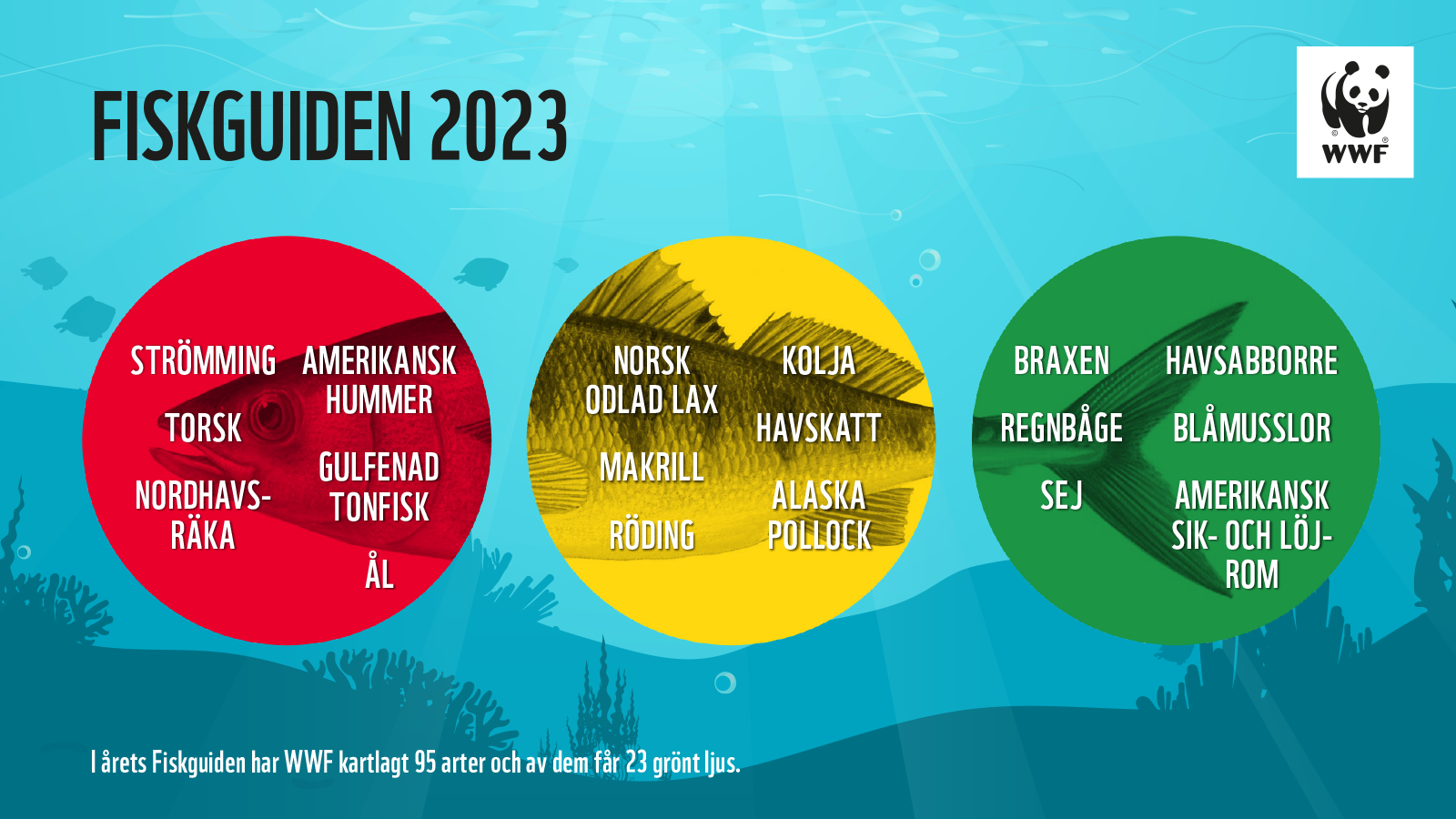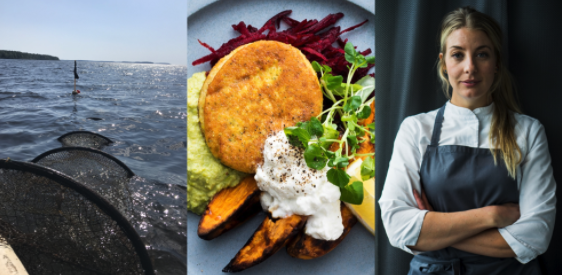
Fish
Sustainable fish products from small-scale fisheries
The Baltic Sea suffers from eutrophication, an excess amount of nutrients, which affects the delicate ecosystem of fish stocks, marine life, and overall water quality. To capture nutrients, such as phosphorus, local fish play a vital role in recycling nutrients and is an effective method to improve the health of the Baltic Sea. The Fish project promotes sustainable fishing practices and policies to address these issues. Besides being a cost-efficient measure to combat eutrophication, cyprinid fish offer a new revenue stream for local fisheries and a healthy protein source for consumers.
Native fish such as bream and ide have historically been common food fish but are now rare in the fish market. The Swedish Food Agency recommends eating fish and seafood 2-3 times a week for health and environmental benefits. Bream is a sustainable, climate-friendly, and healthy local option with a carbon footprint similar to beans. The locally sourced bream and ide in the Fish project are being made into sustainable fish products by Guldhaven Pelagiska, under the brand Braxa. The fishing – carried out in Bothnian Bay and Gotland, Sweden and the Åland Islands - is monitored by Swedish experts to carefully manage fish stocks.
Launched in 2019 and co-funded by the NEFCO Baltic Sea Action Fund, the project involved partnerships with businesses, authorities, researchers, and NGOs. Although the project ended in September 2021, efforts for sustainable fishing continue in Finland and Sweden. Race For The Baltic remains engaged in working with fishermen and authorities in Sweden to establish a long-term, sustainable cyprinid fishing industry along the Baltic Sea coast.
Project Activities
We have developed guidelines for sustainable fishing including monitoring, fishing gear, by-catches, reporting, and more. The guidelines have been agreed by all concerned parties and authorities.
We have conducted health tests on the fish.
We have enrolled fishermen in our sustainable fishing program.
We have partnered with commercial producers to develop production chains and bring new products to market.
The products were tested and accepted by The Swedish Food Agency.
The carbon footprint on bream was officially calculated and proven to be in the same level as beans and lentils (0,5 kg CO2 per kg bream).
We have developed recipes with celebrity chef Frida Ronge.
We have contributed to research on cyprinid fish populations.
Status
The project is finished (2019-2021).
Project Goals
Remove nutrients from the Baltic Sea by creating a market-driven food production chain that makes sustainable use of cyprinid fish, as well as increase the demand for cyprinid fish in Sweden and Åland.
Achieved Results
The Braxa products are available to food service via the wholesalers Martin & Servera, Svensk Cater and Menigo.
Municipal kitchens and schools in Sweden have ordered over 100 free sample boxes through the braxen.nu website.
Bream from the Baltic Sea was given a 'green light' (good choice) in the WWF Sustainable Seafood Guide 2023, paving the way for sustainable commercial fishing of bream.
Increased co-operation from the entire value chain including partners such as AxFoundation, Sveriges Fiskares Producentorganisation, Svenska Fiskauktioner, Svenska Insjöfiskarenas Centralorganisation and RISE to strengthen sustainable inland and Baltic Sea fishing.
Project Partners
The partners in the project are Guldhaven Pelagiska, Rädda Lumparn, Ålands Fiskarförbund, John Nurminen Foundation
Funding
The Baltic Fish project was co-financed by the Finnish and Swedish governments’ Baltic Sea Action Plan Trust Fund, which in turn is managed by the Nordic environmental financing company NEFCO.
Sustainable Development Goals
The project addresses SGD 9 (industry, innovation and infrastructure), SDG 14 (life below water) and SDG 17 (partnership for the goals).
Related news








